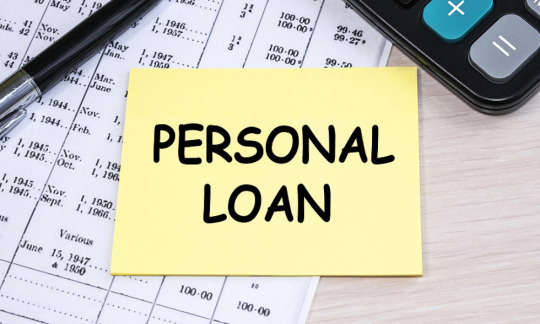#loanqualifications
Text
Startup Business Loans: Everything You Need to Know
Introduction
Starting a new business is an exhilarating experience. But one of the first major obstacles for any entrepreneur is figuring out how to fund their innovative startup idea. While some startups can bootstrap their way off the ground, many need access to capital to turn their dreams into reality. A small business loan can provide the influx of cash a budding startup needs to get on its feet. This article will explore tips and options for securing startup financing through business loans.
Introduction
Craft a Convincing Business Plan
Strengthen Your Personal Credit
Invest Your Own Capital
Get Your Business House in Order
Explore SBA Loans
Pitch Your Strongest Assets
Sell Your Skills and Experience
Conclusion
Craft a Convincing Business Plan
The foundation of any startup loan application is a comprehensive and well-researched business plan. This document should include:
- An executive summary that briefly describes your company, product or service, target market, competitive advantages, management team, financial projections, and capital requirements. Think of this as your elevator pitch.
For example: "ABC Co. aims to disrupt the pizza delivery space by launching an app that facilitates delivery from multiple local pizzerias. Our proprietary algorithm matches orders with the nearest pizzeria to enable fast, streamlined delivery."
- A detailed company description expanding on your core business, products/services, intellectual property, and operations model.
For example: "ABC Co. has developed a mobile app that receives customer pizza orders and coordinates fulfillment by linking these orders to pizzerias based on proximity. Our app involves proprietary IP including our matching algorithm and integrated payment processing. We will monetize the app through fees charged to pizzerias as a percentage of each transaction."
- Market analysis detailing target customers, total addressable market size and growth potential, competitors, and your competitive advantages.
For example: "The app targets hungry people aged 18-30 in Boston looking for convenient pizza delivery from a seamless platform. This $500M market has grown 10% annually. Competitors like Pizza Hub lack network scale and smart algorithms. Our focus on strong unit economics will support acquisition and retention."
- Financial projections including projected income statement, balance sheet, cash flows, and capital requirements over the next 3-5 years, with assumptions clearly outlined.
For example: "We project growing monthly revenue from $10k to $200k by 2025 based on a target of 100 pizzerias and 5,000 users by Year 3. Total capital required is $500k to fund tech development and sales and marketing for user acquisition."
The more realistic details and analysis you can provide, the better. Quantify everything and back up assertions with credible third-party data and evidence for best results.
ABC Co. Revenue Projection
Strengthen Your Personal Credit
For startups without an established business financial history, the founder’s personal credit score and reports will be closely scrutinized. Before applying for a startup loan, take steps to strengthen your personal credit profile:
- Pay down credit card balances and other debts to reduce your credit utilization ratio. High balances close to your limit drag down your score. Pay off cards completely if possible.
For example, if you have a $10,000 limit across your cards and $8,000 total balance, get the balance down to at least below $5,000.
- Correct any errors on your credit reports by disputing them with the bureaus. Inaccuracies like accounts that aren't yours, incorrect balances, etc. can negatively impact your score.
For example, if you notice an account still listed as open that you know you closed years ago, file a dispute.
- Become an authorized user on someone else’s credit card to benefit from their good payment history. Make sure they have excellent credit and low utilization.
For example, you could ask a parent or spouse with pristine credit to add you as an authorized user on a card they've had for years.
- Pay all bills on time going forward to build a consistent track record of on-time payments. Set up autopay on accounts to avoid missed payments.
For example, set up autopay on your credit cards, utilities, phone bill, etc. to guarantee on-time payment each month.
Taking these steps to boost your credit score and demonstrate responsible financial behavior will help convince lenders you are a worthy borrower for your startup. Good personal credit equals better loan approval odds.

With a higher credit score, you'll be able to qualify for better interest rates on loans and credit cards.

Invest Your Own Capital
Lenders want to see startup founders have their own “skin in the game” by contributing personal capital, usually 10-30% or more of the total loan amount. Investing your own money shows you are financially committed to your business's success. Here are some tips:
- Use personal savings to fund startup costs. Having adequate savings set aside specifically for your new business inspires confidence in lenders.
For example, if seeking a $100K loan, have at least $10-$30K in a dedicated business savings account.
- Investment capital from friends/family can also demonstrate funder confidence. Gifts, loans, or equity investments from your support network should be documented.
For example, you may have $15K in gifts from family members to help fund your startup on top of your own savings.
- Your personal assets like stocks, bonds, retirement accounts, or real estate equity could potentially be leverageable assets via a loan against their value.
For example, you may be able to take a $20K loan against a diversified investment portfolio worth $100K.
- Tap home equity via a line of credit or cash-out refinance to access startup capital if you have sufficient equity available.
For example, if your home is worth $250K with $100K of equity, you may be able to get a $20K HELOC for your business.
- Use personal credit cards responsibly to cover early startup costs and operating expenses.
For example, you might use a credit card for $5K of initial product inventory orders.
Having detailed records demonstrating you have personally "put your money where your mouth is" will go a long way in convincing lenders to put their money where your idea is too.

Get Your Business House in Order
Before approaching lenders, legally establish your business entity, acquire licenses and permits, trademark your name if applicable, and address other regulatory and compliance needs. This demonstrates you are organized.
Explore SBA Loans
1. Understand the Types of SBA Loans:
- 7(a) Loans: These are the most common SBA loans, offering funds for various business purposes, including working capital, equipment purchase, and debt refinancing. Loan amounts can go up to $5 million, with flexible terms ranging from 10 to 25 years. Interest rates are based on the prime rate plus a margin.
- 504 Loans: Designed for major fixed assets like real estate or heavy equipment. These loans can also reach up to $5 million, with terms of 10 to 25 years. The unique aspect is the below-market fixed interest rates.
- Microloans: Ideal for very small businesses and startups, microloans provide up to $50,000 through non-profit lenders. They have more lenient terms, making them accessible to those who may not qualify for traditional financing.
2. Find an SBA-Approved Lender:
- Ensure you choose a lender that is approved by the Small Business Administration (SBA). Most banks, some credit unions, and other financial institutions have this authorization. Check the SBA's official website or contact local banks to identify SBA-approved lenders.
3. Prepare Documentation:
- Similar to conventional loans, be ready with comprehensive documentation, including:
- A well-structured business plan that outlines your business's purpose, market analysis, financial projections, and management team.
- Financial statements, including income statements, balance sheets, and cash flow statements.
- Information about collateral assets that may be used to secure the loan.
4. Be Aware of Guarantees:
- While the SBA guarantees a portion of the loan, you may still need to provide collateral and/or a personal guarantee for the remaining loan balance. This means your personal assets may be at risk if your business can't repay the loan.
5. Understand Loan Limitations:
- SBA loans come with limitations on how you can use the proceeds. Make sure you are aware of these restrictions and that your business plans align with them. Additionally, certain industries may be ineligible for SBA loans, so check if your business falls into any prohibited categories.
6. Assess Credit Requirements:
- While SBA loans are generally more flexible than conventional loans, they still have minimum credit score requirements. Ensure that your personal and business credit profiles meet these criteria.
SBA loans can be an excellent source of funding for startups due to their favorable terms and lower interest rates compared to traditional bank loans. However, the application process can be rigorous, and approval is not guaranteed. It's crucial to thoroughly research and prepare your business plan and financial documentation to increase your chances of securing an SBA loan that suits your startup's needs.
https://www.sba.gov/business-guide/launch-your-business
https://www.score.org/view-business-stage/plan-start


Pitch Your Strongest Assets
Personal assets like real estate, equipment, inventory, or other property that could potentially secure the loan as collateral can strengthen your business loan application.
Some tips on pitching assets:
- Detail all business assets you already own or could purchase that could be used as collateral. This includes real estate, warehouses, vehicles, equipment, machinery, inventory etc.
For example, if you will use heavy manufacturing equipment for production, that equipment could potentially be used to secure the loan.
- List any personal real estate equity in properties like your home, rental properties, commercial buildings, land etc. These may be leverageable through a HELOC or other mechanism.
For example, if your home has $100K in equity, highlight how a portion could secure the loan.
- Note any business accounts receivable, purchase orders, contracts, or other guaranteed future revenue that provides assets to borrow against.
For example, highlight major sales contracts you have in place representing future guaranteed cash flow.
- Outline any intangible assets including patents, trademarks, copyrights, licenses, proprietary processes, or unique technologies the business owns.
For example, patent-pending technologies you've developed could have significant future value.
- Document investment accounts, retirement accounts, cryptocurrencies, and other liquid personal assets that could potentially be tapped as collateral if required.
For example, note any stocks/bonds, 401K, or Bitcoin/Ethereum holdings you own.
Basically, spotlight every asset and revenue source you can leverage for the strongest collateral position. Assets = reduced lending risk = better loan terms and approvals.
Sell Your Skills and Experience
Selling your skills and experience is a critical aspect of convincing lenders, investors, and partners that you are the right leader for your startup. Here's how to effectively highlight your background:
- Entrepreneurial Experience:
- If you have prior entrepreneurial experience, whether it's running your own business or being part of a startup team, emphasize it. Discuss your achievements, challenges you've overcome, and how these experiences have prepared you for your current venture.
- Relevant Education and Training:
- Mention any formal education and training that is directly related to your startup. This could include degrees, certifications, or courses in business management, finance, marketing, or any other field relevant to your industry.
- Industry Expertise:
- Highlight your deep knowledge and expertise in the industry your startup operates in. Discuss your insights, trends you've observed, and how your industry knowledge positions you as a subject matter expert.
- Specialized Skills:
- Identify any specialized skills that are crucial for your startup's success. These could include technical skills, such as programming or design, or specific domain knowledge, such as biotechnology or e-commerce.
- Leadership Qualities:
- Showcase your leadership qualities, such as vision, adaptability, and problem-solving abilities. Provide examples of how you've led teams, made tough decisions, and navigated challenges.
- Achievements and Awards:
- If you've received any awards or recognition for your work or entrepreneurial endeavors, mention them. Awards can serve as external validation of your skills and accomplishments.
- Networking and Industry Connections:
- Discuss your professional network and industry connections. Highlight any partnerships or collaborations you've formed that demonstrate your ability to build relationships and leverage resources.
- Track Record of Success:
- Provide concrete examples of your past successes, whether they are in business, academia, or other areas. Metrics and data can add credibility to your claims.
- Commitment to Learning:
- Express your commitment to continuous learning and improvement. Mention any ongoing courses, workshops, or initiatives you're involved in to enhance your skills and knowledge.
- Passion and Dedication:
- Convey your passion for your startup and your unwavering dedication to making it succeed. Passionate entrepreneurs often inspire confidence in others.
- Team Building Skills:
- If you've successfully built and managed teams in the past, highlight your team-building skills. A strong team is a crucial component of startup success.
- Problem-Solving Abilities:
- Share examples of complex problems you've tackled and solved. Demonstrating your ability to navigate challenges can instill confidence in your leadership.
Incorporate these elements into your business plan, pitch deck, or investor presentations to effectively communicate why you are the right person to lead your startup. Confidence in your skills and experience can be a compelling factor in attracting the support and resources your startup needs to thrive.
Conclusion
Through meticulous preparation and exploring all options, startup founders can identify the ideal financing solutions to turn their vision into a reality. Weigh lending choices carefully and emphasize your strengths to convince lenders your startup is a worthy investment. With proper funding, your entrepreneurial aspirations can become successful ventures.
Read the full article
#alternativeloans#businessfunding#howtoapplyforaloan#howtochoosealoan#loanqualifications#loanterms#loantypes#SBAloans#smallbusinessloans#startupbusinessloans#startupcapital#startupfinancing#startuploans
0 notes
Text
What You Need To Know For Personal Loan Eligibility ?
Originally Posted By Economytody, 17 Aug 2023 -

When unexpected expenses arise or dreams need financing, a personal loan can be a lifeline.
Imagine you have big dreams, like going to college, fixing your car, or starting a small business. Sometimes, we need a bit of extra money to make those dreams come true.
That's where personal loans come in. They're like a helping hand that gives you the money you need, and you can pay it back over time.
But before you can get a personal loan, there are some important things to know.
It's a bit like preparing for a journey – you need to make sure you have everything you need before you start. One of the most important things to understand is "personal loan eligibility." This is like the key that opens the door to getting a loan.
Getting a personal loan has some rules, kind of like a game. These rules are called "requirements," and they're like the basic things you need to do to play the game and get the loan.
Explaining The Basic Requirements
Getting a personal loan isn't super complicated, but there are a few important things you need to have.
These might include:
Being old enough (usually at least 18 or 21 years old)
Living in the same place where the loan is available
Having a regular job or another way to show you can pay back the money
Proving who you are and where you live with some papers
Why Meeting The Requirements Is Important
Meeting these rules is like making sure you have all your tickets before you can ride the amusement park rides. Lenders, the people who give out loans, want to be sure you can pay them back. When you meet these rules, it shows them you're responsible and ready to handle borrowing money.
As you get ready to apply for a personal loan, remember that following these basic rules isn't just a formality. It's the first step to getting the loan you need. In the next parts, we'll dig deeper and talk about other things that lenders look at before they decide to give you a loan. This way, you'll have all the tools you need to confidently move forward on your borrowing journey.
When considering a personal loan, it's essential to understand the intricacies of eligibility, factors affecting it, and how to secure the best possible terms.
Here's a comprehensive breakdown to guide you through the process.
How To Check Personal Loan Eligibility:
Credit Score Check: Check your credit score and credit record first. For personal loans, many lenders have a minimum credit number that you need to have.
Income Assessment: Calculate your debt-to-income (DTI) ratio by dividing your total monthly debt payments by your monthly income. Most lenders prefer a DTI ratio below 36%.
Employment and Stability: Lenders assess your job history and stability. Permanent employment often increases your eligibility.
Existing Debts: Analyze your existing debt obligations as lenders consider your ability to manage additional debt.
How To Improve Personal Loan Eligibility:
Enhance Credit Score: Pay bills on time, reduce credit card balances, and correct errors in your credit report.
Increase Income: Seek additional income sources to improve your DTI ratio.
Reduce Debts: Pay off existing loans or credit card balances to lower your overall debt burden.
Strengthen Job Stability: Stay in a stable job or show a consistent employment history.
Factors Affecting Personal Loan Eligibility:
Credit History and Score: A strong credit profile enhances eligibility.
Income and DTI Ratio: Higher income and lower DTI ratios increase your chances.
Employment Type and Stability: Permanent employment is often preferred.
Existing Debts: Higher existing debt might lower eligibility.
Age and Residency: Meeting age and residency criteria is essential.
Minimum Credit Score For A Personal Loan: Understanding Eligibility Thresholds
When it comes to personal loans, your credit score plays a pivotal role in determining your eligibility. While the exact credit score requirement varies from lender to lender, a general benchmark hovers around 600. This means that having a credit score of approximately 600 or above could make you eligible to apply for a personal loan.
However, it's essential to grasp the significance of credit scores beyond mere eligibility. A higher credit score not only increases your likelihood of approval but also positions you for more favorable terms. Lenders tend to offer lower interest rates and more flexible repayment options to borrowers with higher credit scores. So, while 600 might be a baseline, striving for a stronger credit profile can significantly enhance your borrowing experience.
Maximum Personal Loan Amount: The Bounds Of Borrowing Potential
The maximum amount you can borrow through a personal loan isn't set in stone; rather, it's a dynamic figure influenced by several factors. Lenders take into account your income, credit history, and financial capacity when determining your borrowing potential. As a result, personal loan amounts can span a considerable range, typically starting from a few thousand dollars and extending to tens of thousands.
Your income and creditworthiness are pivotal determinants of the upper limit. A higher income and a robust credit history could secure you a more substantial loan amount. However, it's crucial to exercise prudence – while a larger loan might be enticing, consider your ability to manage the associated repayments comfortably. Striking a balance between your needs and your financial capability is key to making the most of your personal loan.
Approval Timeline For A Personal Loan: The Path To Possibilities
When urgency is of the essence, knowing how quickly you can secure a personal loan approval can be invaluable. Approval timelines can vary, offering different timeframes based on the lender you choose and the loan application process. In many cases, the approval process can be as swift as a few hours to a few days.
Online lenders, in particular, often boast faster approval times compared to traditional brick-and-mortar banks. The digital nature of online lending platforms expedites the review and processing of your application, resulting in quicker decisions. This speed can be particularly advantageous when you're facing time-sensitive financial needs.
Fees Associated With A Personal Loan: Navigating Financial Obligations
When exploring personal loan options, it's essential to be aware of the potential fees that might accompany the borrowing process. These fees are part of the cost equation and can impact the overall affordability of the loan.
Origination Fees: These are charges associated with processing your loan application. They're usually a percentage of the total loan amount and are deducted from the loan disbursement.
Prepayment Penalties: While early loan repayment might seem like a good idea, some lenders impose prepayment penalties. These fees are levied if you pay off your loan before the agreed-upon time, potentially offsetting the benefits of early repayment.
Late Payment Fees: Timely repayments are crucial. Late payments can attract penalties, affecting your credit score and adding to your financial burden.
Understanding these fees allows you to make informed decisions about your loan choice. Before signing on the dotted line, ensure you have a clear picture of the fees associated with the loan, enabling you to budget effectively and avoid unnecessary surprises down the road.
Benefits Of A Personal Loan:
When it comes to personal loans, there are both upsides and downsides to consider. Let's start by exploring the positive side – the benefits that make personal loans a valuable financial tool.
Making Dreams Reality
Imagine you want to start your own small business, take a dream vacation, or pay for your wedding – but you don't have all the money right now. Personal loans can help turn these dreams into reality. They give you the extra funds you need to make big things happen, even if you don't have all the cash upfront.
Flexibility to Suit Your Needs
One of the coolest things about personal loans is that they're super flexible. You can use the money for a wide range of things – from fixing a leaky roof to paying off medical bills. Unlike some other types of loans that have specific purposes, personal loans give you the freedom to choose how you want to use the money. So, whether it's a planned expense or an unexpected emergency, a personal loan has your back.
Manageable Monthly Payments
Paying back a personal loan is like taking small steps towards a big goal. When you borrow a larger sum, the lender breaks it down into manageable monthly payments. This way, you don't have to worry about coming up with a huge amount all at once. It's like having a clear road map to repay what you borrowed.
Fixed Interest Rates
Personal loans often come with fixed interest rates. This means that the interest you pay stays the same throughout the loan term. It's like knowing exactly how much gas you need for a road trip – no surprises along the way. Fixed rates provide stability and help you plan your budget effectively.
No Collateral Needed
Unlike some loans that ask for your car or house as security, personal loans are usually unsecured. This means you don't have to put up any of your belongings as collateral. It's like borrowing money from a friend who trusts you without asking for anything in return.
Improve Your Credit Score
Believe it or not, a personal loan can actually help boost your credit score. When you make your payments on time and in full, it shows that you're a responsible borrower. Over time, this can lead to a better credit score, opening doors to even more financial opportunities in the future.
Risks Of A Personal Loan:
While personal loans offer many advantages, it's important to shine a light on the other side of the coin – the potential risks and pitfalls you should be aware of.
i. Potential Downsides
Interest Costs: Personal loans often come with interest, which is essentially the fee you pay for borrowing money. Depending on your credit score and the loan terms, the interest can add up over time and make the total amount you repay higher than what you initially borrowed.
Debt Accumulation: Borrowing money might feel great at first, but it's essential to keep an eye on how much you're borrowing and if you can comfortably handle the monthly payments. Taking on more debt than you can handle could lead to financial stress down the road.
Impact on Credit Score: Failing to make timely payments or defaulting on a personal loan can damage your credit score. A lower credit score can make it harder to secure loans or credit in the future, affecting your financial options.
ii. The Role of Responsible Borrowing and Repayment
Just as with any financial commitment, responsible borrowing is key. It's crucial to borrow only what you genuinely need and can comfortably repay. Before taking out a personal loan, assess your financial situation, create a budget, and ensure you have a clear plan for repaying the loan on time.
How To Compare Personal Loan Offers
Navigating through various personal loan offers might seem overwhelming, but fear not – we're here to guide you through the process.
i. Step-by-Step Comparison Guide
Understand Your Needs: Before you dive into comparing offers, have a clear idea of why you need the loan and how much you need. This will help you filter out offers that don't align with your requirements.
Check the Interest Rate (APR): The Annual Percentage Rate (APR) gives you a better picture of the total cost of the loan, including interest and fees. Compare APRs to get an accurate idea of which offer is more cost-effective.
Examine Repayment Terms: Look at the repayment period – how long you have to pay back the loan. A longer term might result in smaller monthly payments, but it could also mean paying more in interest over time.
ii. Key Factors to Consider
Interest Rates: Lower interest rates mean you'll pay less overall. Compare rates to find the most competitive offer.
Fees and Charges: Some lenders may have additional fees, such as origination fees or prepayment penalties. Be aware of these costs when comparing.
Repayment Flexibility: Check if the lender allows early repayment without penalties. This can be beneficial if you plan to pay off the loan ahead of schedule.
Customer Reviews and Reputation: Research the lender's reputation and read customer reviews to gauge their reliability and customer service.
How To Negotiate A Lower Personal Loan Interest Rate:
Shop Around: Compare offers from different lenders to leverage competitive rates.
Improve Credit Score: A higher credit score qualifies you for lower interest rates.
Leverage Existing Relationships: Check if your current bank offers better rates for existing customers.
Consider a Co-Signer: A co-signer with good credit can help secure a lower rate.
In conclusion, understanding personal loan eligibility, factors affecting it, and the associated benefits and risks is crucial before applying for a loan.
By assessing your financial situation, improving your creditworthiness, and carefully comparing offers, you can make informed decisions and secure a personal loan that aligns with your needs and goals.
Remember, responsible borrowing and diligent repayment are key to maintaining a healthy financial profile.
#PersonalLoanEligibility#LoanQualification#LoanApprovalCriteria#BorrowingRequirements#LoanEligibilityFactors#LoanApplicationTips#CreditScoreMatters#LoanEligibilityChecklist#FinancialPreparation#GettingAPersonalLoan
0 notes
Link
The best answer is to check with your lender first
www.1stChoiceBHL.com
0 notes
Photo

#loanaibarra #loanpro #loanabonecas #loandgo #loanforgiveness #loanrepayment #loanprogram #loankl #loanding #loansapproved #loanapplication #loangboard #loanschangelives #loanguy #LoaningLA #loanrates #LoanBenefits #loansigningsystem #loansigningagent #LoanTip #loanphotos #loanda #loanword #loanorcredit #loanorigination #loanwolf #loanranger #loanqualification #loantakaladies #loanwatch (at Manassas, Virginia) https://www.instagram.com/p/B04U8WSHZeu/?igshid=500hjdhco2ff
#loanaibarra#loanpro#loanabonecas#loandgo#loanforgiveness#loanrepayment#loanprogram#loankl#loanding#loansapproved#loanapplication#loangboard#loanschangelives#loanguy#loaningla#loanrates#loanbenefits#loansigningsystem#loansigningagent#loantip#loanphotos#loanda#loanword#loanorcredit#loanorigination#loanwolf#loanranger#loanqualification#loantakaladies#loanwatch
0 notes